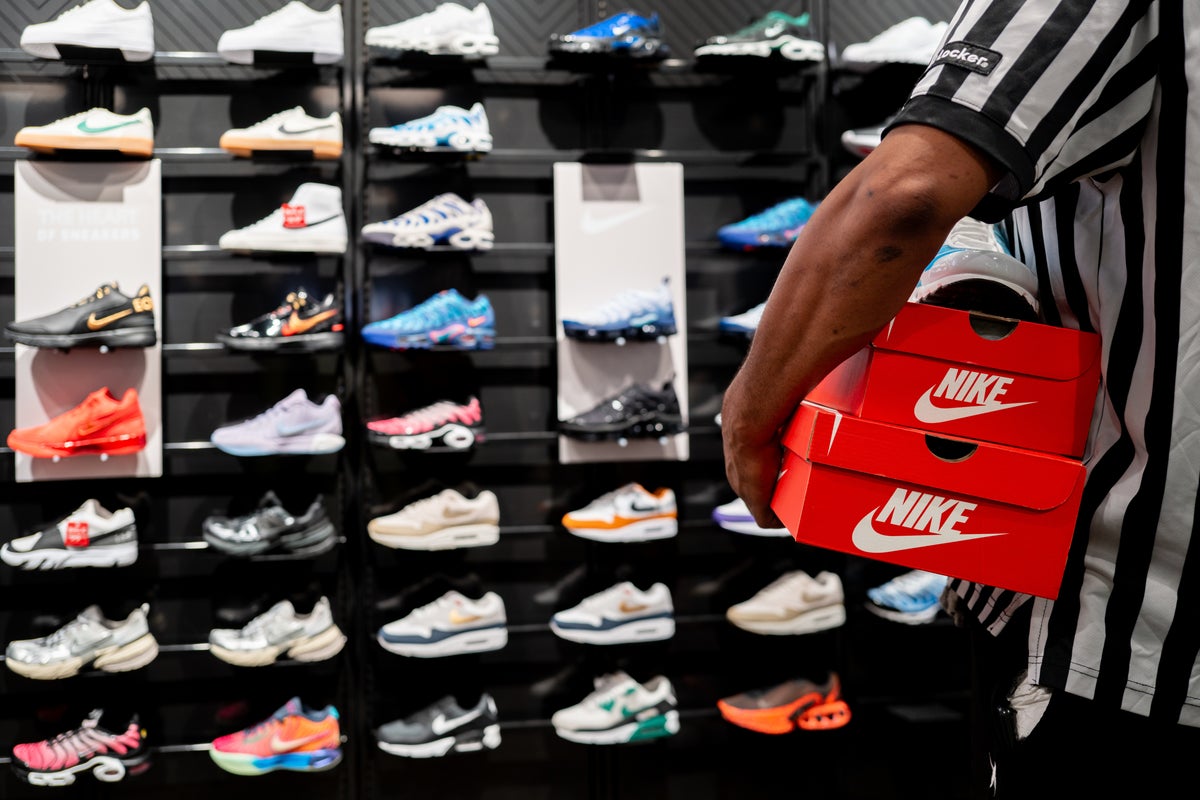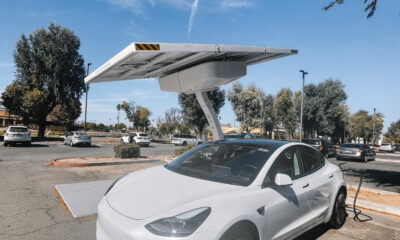Business
Nike Faces $1.5 Billion Tariff Blow Amid Comeback Efforts

Nike executives have indicated that the company’s recovery efforts may be significantly hampered by anticipated tariff costs of $1.5 billion. This estimate from the Trump administration marks an increase from the previous projection of $1 billion made just three months ago. Despite this economic hurdle, the Oregon-based sports giant remains cautiously optimistic following a surprising sales increase in the last quarter.
During an analyst call on August 15, 2023, Nike’s CEO, Elliot Hill, expressed hope for the company’s future. “Nike’s journey back to greatness has only just begun,” he stated, adding, “Progress won’t be linear, but the direction is.”
The ripple effects of the tariffs are not limited to Nike. Other leading U.S. corporations are also bracing for financial impacts. For instance, Apple projected that it could incur $1.1 billion in tariff-related costs in the upcoming quarter. These tariffs, many of which were implemented in August, are starting to affect various sectors of the economy.
Small businesses, often lacking the resources to mitigate these costs, are particularly vulnerable. Brandon Mills, a business owner in Las Vegas who specializes in custom apparel, voiced his concerns about the financial strain. “It’s hard to breathe,” he told The New York Times, highlighting the difficulties faced by enterprises that rely on imported goods.
The current tariffs have generated over $214 billion in revenue for the U.S. government. In addition to existing levies, the Trump administration has proposed new tariffs, including a potential 100 percent tariff on foreign films and additional tariffs on pharmaceuticals, cabinets, upholstered furniture, and heavy trucks.
A survey conducted by Yale University professors revealed that approximately two-thirds of CEOs believe tariffs have negatively impacted their businesses. Furthermore, many expressed disappointment with the overall economic performance under the Trump administration. Jefferey Sonnenfeld, a professor at Yale, noted the widespread concerns about tariff policies and their implications for the free enterprise system. “More than anything else, it’s the corrosive effect of not having a functioning democracy,” he stated during an interview with CNN.
Warnings about the long-term effects of these tariffs have also emerged from the financial sector. JPMorgan CEO, Jamie Dimon, suggested that the most significant impacts of the tariffs may still be forthcoming. “I think you better be careful on that one because some of these things have long cycles,” Dimon remarked in a recent interview.
As the economic landscape shifts, the legality of the president’s tariffs is under scrutiny. The Supreme Court is currently reviewing the case, following findings from lower federal courts that the White House may lack sufficient authority to impose these emergency measures.
As Nike navigates these challenges, its ability to adapt in a changing economic environment will be crucial for its recovery and future success.
-

 Entertainment3 months ago
Entertainment3 months agoAnn Ming Reflects on ITV’s ‘I Fought the Law’ Drama
-

 Entertainment4 months ago
Entertainment4 months agoKate Garraway Sells £2 Million Home Amid Financial Struggles
-

 Health3 months ago
Health3 months agoKatie Price Faces New Health Concerns After Cancer Symptoms Resurface
-

 Entertainment3 months ago
Entertainment3 months agoCoronation Street’s Carl Webster Faces Trouble with New Affairs
-

 Entertainment3 months ago
Entertainment3 months agoWhere is Tinder Swindler Simon Leviev? Latest Updates Revealed
-

 World2 weeks ago
World2 weeks agoBailey Announces Heartbreaking Split from Rebecca After Reunion
-

 Entertainment2 weeks ago
Entertainment2 weeks agoCoronation Street Fans React as Todd Faces Heartbreaking Choice
-

 Entertainment4 months ago
Entertainment4 months agoMarkiplier Addresses AI Controversy During Livestream Response
-

 Science1 month ago
Science1 month agoBrian Cox Addresses Claims of Alien Probe in 3I/ATLAS Discovery
-

 Health5 months ago
Health5 months agoCarol Vorderman Reflects on Health Scare and Family Support
-

 Entertainment4 months ago
Entertainment4 months agoKim Cattrall Posts Cryptic Message After HBO’s Sequel Cancellation
-

 Entertainment3 months ago
Entertainment3 months agoOlivia Attwood Opens Up About Fallout with Former Best Friend





















